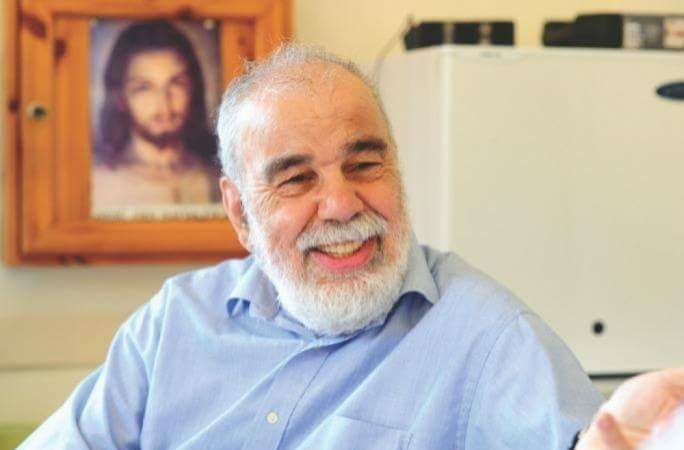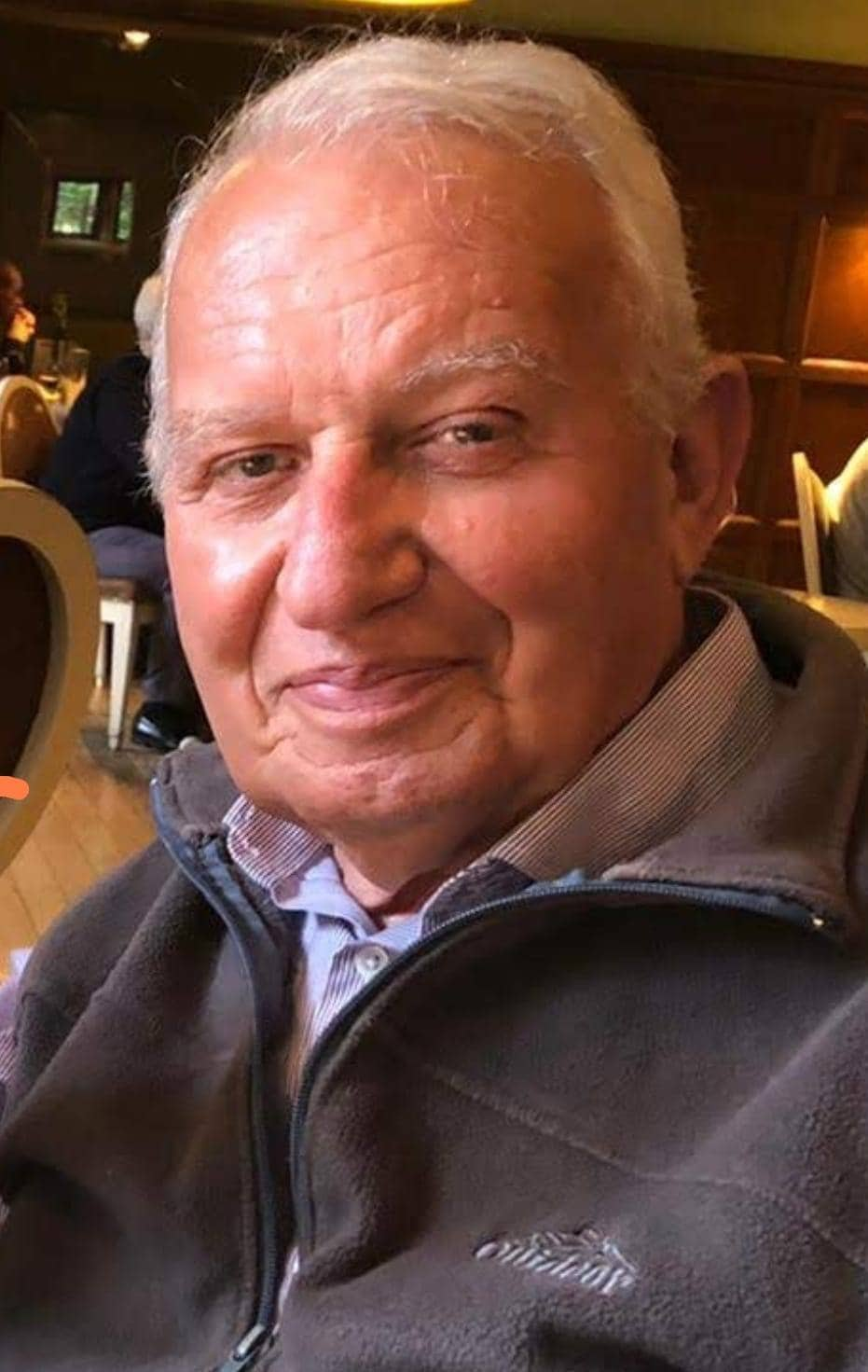The sudden death of Charles Miceli has shocked many people who have come to associate him with the struggle against poverty and drug addiction. But Miceli was much more than a ‘champion of the poor.’
He worked tirelessly to help and assist homeless people, prison inmates, campaigned for the legalisation of soft drugs, an increase in the minimum wage, regularising the rental market and was a true gentleman throughout his life.
Many will remember him for being a leftist and devoted Christian who dedicated his life to helping the most vulnerable while many others will remember him for his sense of humour and humility.
We asked a few people, friends and colleagues, to share their thoughts about a man who will be sorely missed.
Michael Grech (academic and campaigner)
It would be futile to recall Charles’ genuine Christian-Socialist values, his commitment to the poor both in terms of militancy (championing justice in its various facets) and of providing hands to help those in need (ranging from the provision of basic material needs, to listening to people to whom no one lends an ear for various reasons), or his ideas and vision of a society and world where everyone regardless of colour, creed, gender or legal record could lead a truly human life. Others will do this, perhaps better than I ever could.
I will focus on an aspect which, understandably given the current feelings amongst those of us who were blessed with his friendship, few will probably highlight – his lightheartedness. It is said that Martin Luther King could combine anger at the injustice people suffered and humour at the contradictions of the powers that be.
Such humour does not entail a trivilisation of or laid back attitude towards the issues one is militating for. It instead entails an attitude that can keep one sane in relation to the contradictions of oppressive circumstances and situations; an attitude that can help the militant fight another day for a worthy cause. In a country where commitment to anything (raging from trivial things like the Eurovision to much more serious matters) is normally riddled with solemnity and self-righteousness, Miceli’s humor taught me of the need not to take oneself (oneself, not one’s cause) too seriously and not to feel Messianic about one’s militancy.
At the moment my thoughts about Charlie are a contradictory mixture of incredulity about his death and terrible grief at losing a friend and a master. When things will calm down however, I will probably remember this deep, light-hearted and serene militant-friend with a half smile.
Maric Mizzi (PRO and Fund-raiser Caritas Malta)
Charles Miceli worked tirelessly, until a few hours before his death, to uncover the hardships experienced by marginalised people, who he held at heart. Just one week before his death he was conducting a press conference to give a voice to the homeless who were victims of sky-high rentals. He urged authorities to listen to the heartache of these people and reform the rental market.
In 2016 he was at the forefront together with Caritas Malta in the fight to increase the minimum wage with nearly one in four people in Malta at risk of poverty.
I feel privileged that in four years I had long discussions with Charles. I would listen to him quietly at length, and he would remind me what our mission was.
For those who never met him closely and never knew him behind the scenes, he was one of the very few who I could describe as very humble and a gentleman.
Every Monday, I would wait for him to pass by my office to say hello with his contagious smile and sparkling eyes. He was also very humble in the way he dressed, walking calmly carrying his little bag. I can never forget when I once called him to attend a TV programme and I told him to wear a jacket but he replied that the most important thing was to convey the message to the authorities.
That was Charles for you, always close to the weak, irrelevant of their skin colour or nationality. If you were poor, or discriminated against he would always give you his shoulder to cry on.
A lot has been written about you Charles, social media cried for you, the highest authorities praised you. But although we bid you farewell your relentless work will live on. The echo of your voice will continue to reverberate and may this touch many hearts to reach out the hand of friendship to those who are suffering.
I will miss you but never forget you. You have left an indelible mark on me and I promise to give a voice to the voiceless guided by the principles you always held at heart; feed the hungry, satiate the thirsty, cloth the naked, welcome the homeless…Rest in peace my friend.
Fr Mark Montebello (philosopher)
Charles was more than a mere socialist; he was an anarchist, that is, a believer in equality and self-government. What, I think, brought him to this belief, after being close to the GWU and the Labour Party since 1964, at the young age of 15, and after decades working with marginalised people, was his realisation that institutions, however leftist and benevolent, tend to retain the oppressive structure of rulers and ruled. Charles’ intellectual honesty, always embraced and expressed in the most simple of terms, could not accept this. Be it as social worker, as public figure or as friend, his critical eye was forever sensitive to the plight of the downtrodden as to the machinations of authoritarians in whatever guise they came.
Throughout his entire life, Charles’ principles of social justice were never for grabs. Notwithstanding being an idealist to the core, perhaps to the point of romanticism—since he always believes in the perfectibility of persons—he consistently retained his sense of the concrete and the tangible by holding in high esteem the dignity of each single person.
In the endless discussions we always had whenever we met, his passion for understanding, coupled with contagious mirth, wit and humour, was constantly tempered by his decided will to sharpen his empathy towards others and, concurrently, to discover new routes to a more just and humane society. He taught me much, and will forever stay with me, just by having been who he beautifully was.
Leonid McKay (Director Caritas Malta)
Charles worked with Caritas – as an employee and volunteer – for almost 30 years up to his untimely death and was a pioneer in setting up an emergency shelter for homeless drug users. But it was during the last four years that I got to know him really well. Charlie was a magnet for vulnerable people and he lived his life by the Church’s teachings. He would always remind everyone that all one had to do was to follow Jesus’ beatitudes and use them as the guiding principles.
My fondest memory is when we were in the process of organising the first Christmas Day lunch for individuals who do not have anyone to spend the holiday with. When I had asked him what he thought he told me ‘that’s what Caritas is about.’ When I then asked him if he can dress up as Santa Claus he said he didn’t have a costume but he’d do it if it will make people smile.
From then on our relationship grew stronger and worked closely to open Dar Papa Frangisku – a shelter for the homeless. That’s where he felt most comfortable besides when he was with his family or when he was reading and writing.
If there is heaven he is certainly not waiting in the queue and he most certainly asked to be placed on the left side of heaven with the people he loved to help most. The left has lost a reference point and I doubt whether the void he left behind can ever be filled. Charles was inspired by the sweat of the people and not by Marxist idealism of youth. He was an ambassador of the vulnerable. A moral compass for all of us.
Andre Callus (Moviment Graffitti)
Though I have always respected and admired Charles Miceli, I met him for the first time only three years ago during a meeting in which we explored the possibility of starting a campaign for a rise in the minimum wage. From then onwards I had the privilege of working closely with him, first during the Campaign for a Decent Minimum Wage and then on the Proposal for Rent Regulation in Malta. The fact that I felt so shaken by his death made me realise how important Charles was to me, on both a political level as well as a personal one.
Charles can best be described as a genuine person; a person that truly believed in equality, living true to his values by helping people facing economic and social difficulties, and also fighting for structural change. As a true socialist he knew that poverty and loneliness were a result of an unjust social and economic system, not individual weaknesses. He taught me a lot, but perhaps the most important lesson was that being politically on the Left is not only about abstractly believing in social justice and equality.
First and foremost, you have to be there, present among the workers, the poor and the oppressed. A friend of mine once told me that “your mind is where your feet are” – it is only by being among the people suffering from injustice that one can effectively fight for justice. Charles was living proof of this. He was there, in everyday life, among the people suffering from the structural violence wrought by a capitalist system driven by profit and greed. And this is probably the reason why he is one of the few socialists in Malta that did not sell out his principles for money or personal power.
Charles is irreplaceable, but what he has taught us will continue being an invaluable contribution to the struggle for social justice and equality in Malta.
Angele Deguara (academic and activist)
Charles is a person who I greatly admired, as a good, calm and loving man and also for his unwavering leftist principles which he never renounced despite the neoliberal wave which engulfed Malta and Europe.
Charles always put the principles of social justice above everything else and he never shied away from openly criticising whatever he thought went against these principles, without allowing political partisanship to blind him. I had the honour to work with him in the voluntary sector and we always looked at him as a source of inspiration and hope for a fairer society than the one we live in.
He had a firm but considerate voice which always spoke on behalf of the most vulnerable. Its a shame that the life of such a beautiful and genuine person had to end suddenly, leaving behind great sadness. Hopefully his work for a fairer society will be honoured by seeing it come to fruition.













